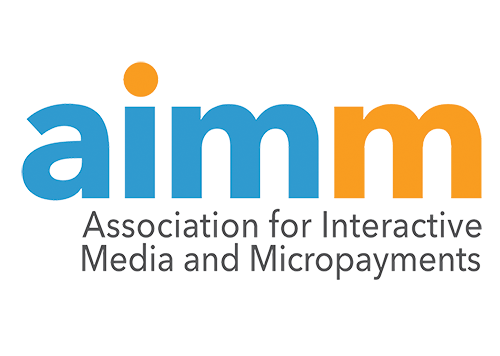The Board for 2014 to 2016 has been elected and will meet soon to kick off the supervision of AIME for the next two years. Meet them here.
From time to time, the AIME Board brings in specific specialisation to the board to help with their role. Once the board has met and agreed additional members to co-opt in, we will update this post.
Edward Boddington (Bod) stays on as Chair for a further six months and will hand over to one of the board members in September.
David Sheridan -Director of Operations – mGage (previously Velti)
 I am a mobile telecommunications leader with extensive, board-level experience in the dynamic mobile technology businesses.
I am a mobile telecommunications leader with extensive, board-level experience in the dynamic mobile technology businesses.
Mobile payments, messaging and mCRM expert with twelve years’ industry experience working across the value chain. Director of Operations for mGage (formerly Velti and MIG), having previously been part of the Senior Management Team at MX Telecom and subsequently OpenMarket for almost ten years. Areas of expertise include regulation, MNO liaison and market development.
Expert knowledge of A2P mobile sector, cloud-based services including Mobile Payments/m-Commerce, SMS, MMS, Short Codes, Voice/ IVR, Mobile Advertising, mCRM.
Specialties: cross functional expertise and leadership in mobile payments, across mobile marketing, mobile product development and technology, sales, marketing & branding, legal & regulatory, mobile network relationships, business development.
Manifesto
Demonstrable industry progress and facilitation of market growth. This can be achieved thorough greater focus on fewer, achievable targets, informed by membership consensus and market analysis of future trends and opportunities.
Barry Hayter – Head of Operations – ITV
 Barry Hayter is Head of Operations at ITV with responsibility for the successful and compliant delivery of all Premium and Free interactive services. Barry has over 10 years experience working for and delivering interactive services into Broadcasters including ITV, FIVE, BBC, SKY and MTV.
Barry Hayter is Head of Operations at ITV with responsibility for the successful and compliant delivery of all Premium and Free interactive services. Barry has over 10 years experience working for and delivering interactive services into Broadcasters including ITV, FIVE, BBC, SKY and MTV.
Prior to ITV Barry ran the Operations department for 6 years at Mobile Interactive Group where he was responsible for Support, Service Delivery, Compliance, Key Accounts and MNO relationships.
His sector knowledge includes PRSMS, MMS, PRST, PayForIt, IP Engagement Apps and Web.
Manifesto
There remains huge growth potential within existing and new solutions across the sector all of which require coherent regulation and unified lobbying to fulfill their maximum potential. AIME has a vital part to play in shaping the future of the industry but this will only be achieved with a strong board and varied membership.
With significant experience in the industry from a Service Provider , Customer and Consumer perspective I feel very well placed to help ensure the right balance is maintained and that benefits are delivered to all elements of the value chain.
Rob Weisz-CEO- Fonix
 With 14 years’ experience across a range of Telecoms and Mobile interactive businesses such as iTouch PLC, Redstone, O2, Mobile Interactive Group, Velti and currently the CEO of Fonix Interactive, Rob has over 14 years’ experience running interactive messaging and payments solutions across Media, Entertainment and Enterprise businesses. Rob has been responsible for overseeing some of the largest interactive campaigns in the UK. In 2009, Rob pioneered text donations for the UK charity sector, ensuring 100% outpayment across all mobile networks. This introduced an additional £60m per annum to the mobile payments industry.
With 14 years’ experience across a range of Telecoms and Mobile interactive businesses such as iTouch PLC, Redstone, O2, Mobile Interactive Group, Velti and currently the CEO of Fonix Interactive, Rob has over 14 years’ experience running interactive messaging and payments solutions across Media, Entertainment and Enterprise businesses. Rob has been responsible for overseeing some of the largest interactive campaigns in the UK. In 2009, Rob pioneered text donations for the UK charity sector, ensuring 100% outpayment across all mobile networks. This introduced an additional £60m per annum to the mobile payments industry.
Manifesto
This industry is at a cross roads. Challenges impacting the effectiveness of traditional PRS and Mobile Payments markets from free to consumer offerings, a number of viable alternative payment models to a plethora of regulatory requirements have made it very difficult to create innovation and new entrants to the market.
My focus is to ensure AIME remains vitally relevant to tackle the maintenance of existing services and supporting new opportunities to this market. This will be done through collaboration of the value chain ‘Telcos – Tech Providers – Service Providers – Merchants – Awareness to consumers’ and I am determined to ensure that this happens.
Chris Newell – CEO and Founder – Impulsepay
 Chris is the CEO and founder of ImpulsePay. Since starting the company in 2009 it’s developed into a leading provider of Payforit technologies through successfully fostering close working relationship with businesses across a broad range of industries. He is also chair of AIME’s Charge to Mobile working group and is closely involved in the development of Payforit with various stakeholders in the ecosystem.
Chris is the CEO and founder of ImpulsePay. Since starting the company in 2009 it’s developed into a leading provider of Payforit technologies through successfully fostering close working relationship with businesses across a broad range of industries. He is also chair of AIME’s Charge to Mobile working group and is closely involved in the development of Payforit with various stakeholders in the ecosystem.
Manifesto
Over the next few years, there are a number of opportunities arising such as improvements to direct bill payments; regulations around quasi-physical goods and improvements in the customer care processes. I would like to continue my time on the AIME board to drive these changes forward and work across the industry to create opportunities for member businesses.
During Chris’s previous two years on the AIME board, he has recruited new members, launched the inaugural Payforit Summit, worked to refine the regulation surrounding Payforit and has seen numerous changes adopted by the Payforit scheme rules.
Jeremy Stafford-Smith – B2B Enablers Compliance Manager – Vodafone
 Jeremy Stafford-Smith is the B2B Enablers Compliance Manager for Vodafone UK. Passionate about protecting the interests of customers and positively promoting the wider Charge to Mobile industry, he is responsible for shaping the way Content and Service providers engage with customers. Jeremy is a member of the cross-network Payforit Management Group, sits on the Phonepay Plus Industry Liaison Panel and is an active participant in several of the AIME working groups. He has worked in mobile telecommunications for 12 years in a variety of roles before taking on his current role in 2010.
Jeremy Stafford-Smith is the B2B Enablers Compliance Manager for Vodafone UK. Passionate about protecting the interests of customers and positively promoting the wider Charge to Mobile industry, he is responsible for shaping the way Content and Service providers engage with customers. Jeremy is a member of the cross-network Payforit Management Group, sits on the Phonepay Plus Industry Liaison Panel and is an active participant in several of the AIME working groups. He has worked in mobile telecommunications for 12 years in a variety of roles before taking on his current role in 2010.
Manifesto
Jeremy believes that the wider PRS industry has worked hard to deliver on the 12th Code principals and now the task is to show merchants of all sizes that the Charge to Mobile payment option delivers high quality and repeatable business and that by working with regulation, a bigger, better business opportunity can be sustained.
Phil Davies – Director of Commercial Operations – OpenMarket

Phil Davies has over ten years’ experience developing 2-way messaging and mobile payment solutions at OpenMarket, serving as its Commercial Operations Director. Known for its domain expertise, service flexibility, demonstrated performance and reliability, global scale, and corporate maturity, OpenMarket provides mobile engagement solutions for organizations to optimize their operations and enhance relationships with their customers and employees.
Manifesto
My priorities for the AIME board are to ensure a collaborative approach to a well-regulated mobile payments market in the UK, to work with stakeholders to identify and overcome barriers to the development of second generation mobile payment opportunities, and to drive high levels of consumer awareness and confidence in mobile payments.
Eric Feltin – Operations Director – Safari Mobile (UK) Ltd

Eric is the co-founder of Safari Mobile (nee Switchfire) in 2001. Safari offers the full range of PRS services – ringtones / logos, chat/date/psychic, sports alerts, competitions, video and game downloads, PSMS billing, Payforit, voice, and apps – as an L2 and an L1. Eric is currently a Co-chair of AIME Digital Marketing Working Group and has made substantial contributions to all PPP consultations over the past 2 years.
Manifesto
PRS entertainment has been in decline since 2009 and I would help AIME and the industry in turning this decline around as the increasing uptake of mobile phones, apps, and micropayments means that PRS should be going from strength-to-strength. I would like to assist AIME in improving the image of the industry to consumers and the regulator and create a climate where the industry can start growing again.
Graham Pottie – CEO – BTagilemedia

Graham is the CEO of BT Agilemedia and I chair the PhonepayPlus ILP. Graham has worked in the PRS industry for almost 6 years and has a long history of launching and managing successful online commerce and mobile based businesses.
Graham is married with three children and is a keen (but flawed) golfer, open water swimmer, cyclist and London Scottish RFC fan.
Manifesto
In the past five years as a member of the AIME Board, I have led the AIME Voice Services Working Group and represented AIME to Ofcom and PhonepayPlus. A current priority is pushing Ofcom for speedy implementation of Higher Rate services.


 Barry Hayter is Head of Operations at ITV with responsibility for the successful and compliant delivery of all Premium and Free interactive services. Barry has over 10 years experience working for and delivering interactive services into Broadcasters including ITV, FIVE, BBC, SKY and MTV.
Barry Hayter is Head of Operations at ITV with responsibility for the successful and compliant delivery of all Premium and Free interactive services. Barry has over 10 years experience working for and delivering interactive services into Broadcasters including ITV, FIVE, BBC, SKY and MTV.
 Chris is the CEO and founder of ImpulsePay. Since starting the company in 2009 it’s developed into a leading provider of Payforit technologies through successfully fostering close working relationship with businesses across a broad range of industries. He is also chair of AIME’s Charge to Mobile working group and is closely involved in the development of Payforit with various stakeholders in the ecosystem.
Chris is the CEO and founder of ImpulsePay. Since starting the company in 2009 it’s developed into a leading provider of Payforit technologies through successfully fostering close working relationship with businesses across a broad range of industries. He is also chair of AIME’s Charge to Mobile working group and is closely involved in the development of Payforit with various stakeholders in the ecosystem. Jeremy Stafford-Smith is the B2B Enablers Compliance Manager for Vodafone UK. Passionate about protecting the interests of customers and positively promoting the wider Charge to Mobile industry, he is responsible for shaping the way Content and Service providers engage with customers. Jeremy is a member of the cross-network Payforit Management Group, sits on the Phonepay Plus Industry Liaison Panel and is an active participant in several of the AIME working groups. He has worked in mobile telecommunications for 12 years in a variety of roles before taking on his current role in 2010.
Jeremy Stafford-Smith is the B2B Enablers Compliance Manager for Vodafone UK. Passionate about protecting the interests of customers and positively promoting the wider Charge to Mobile industry, he is responsible for shaping the way Content and Service providers engage with customers. Jeremy is a member of the cross-network Payforit Management Group, sits on the Phonepay Plus Industry Liaison Panel and is an active participant in several of the AIME working groups. He has worked in mobile telecommunications for 12 years in a variety of roles before taking on his current role in 2010.


